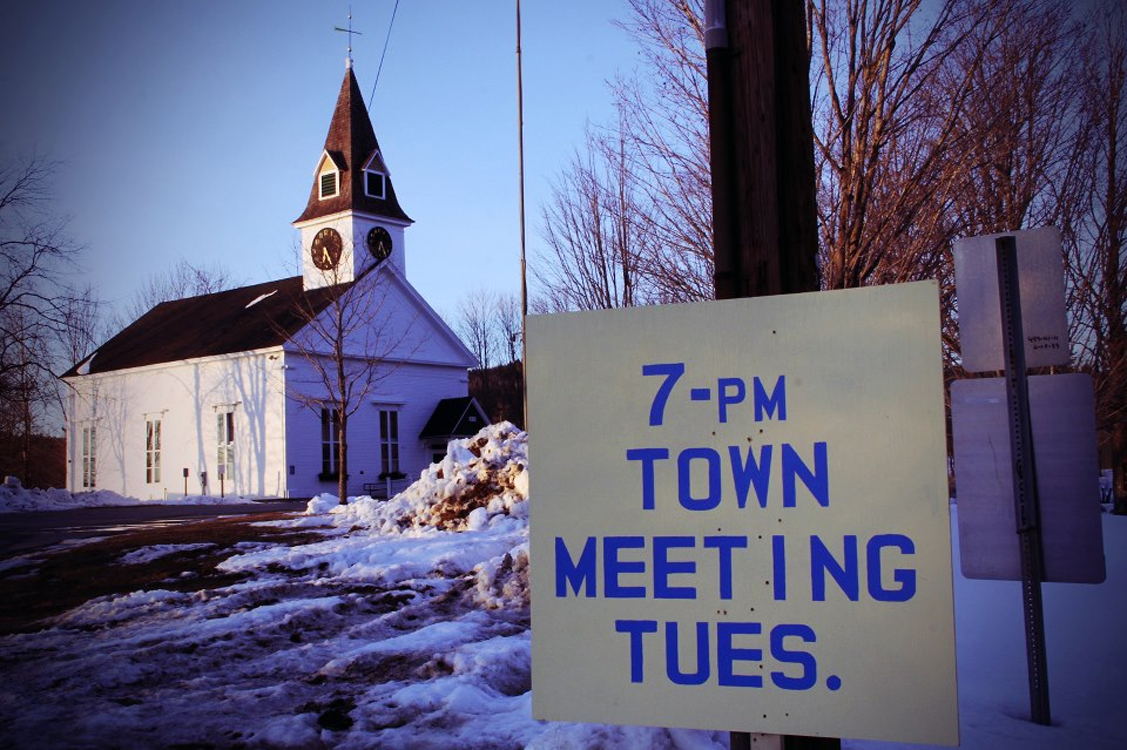Being that this is the second Tuesday in March in New Hampshire, there are two things of note happening, both involving time-honored traditions that make you glad you live here.
Sugarhouses across the state are fired up now and boiling into syrup the first gallons of sap running from the maple trees.
And today is Town Meeting Day, when residents get fired up (a few even boil) but within a few hours, the municipal business for another year is decided. It’s here where there are great lessons in frugality, generosity and oratory.
Ask Granite Staters what Town Meeting is all about and they’ll tell you it’s grassroots democracy. It’s the day when the ledger is opened on what it costs to run a community and decisions will be made on how to spend on things like road repairs and water line construction, upkeep of town properties, how much to save over the next few years to buy a fire truck or police car and whether to build a new school.
It’s a day when anyone can become an accountant, delving into the spending of a town, scrutinizing bottom lines, making a case to spend or save in the forum of a voting booth or the middle of a gym floor turned meeting place. It’s a chance for everyone to become a CEO of sorts in the business of running a town.
Here is where the priorities of a town are set for the coming year and where each voter can weigh in. As investments go, spending a couple of hours at Town Meeting is always a good one.
On a sweeter note, maple syrup.
The first bottles of the season have been put up and, since it takes warm days and cool nights to get the sap running, it must mean that spring is gaining ground.
Maple syrup production is not one of our huge industries, but it’s an important one. Our neighbors down the hall at the Division of Forest and Lands note that maple syrup production is part of New Hampshire’s forest economy, which contributes $2.26 billion annually.
(According to the 2011 report, The Economic Importance of New Hampshire’s Forest-Based Economy, the sale of maple syrup, along with Christmas trees and wreaths, was valued at over $7 million in 2009.)
More than revenue, the stewards of our forests maintain many things that are dear to New Hampshire – environmental health, recreational opportunities, wildlife habitat and the preservation of our rural character.
So here’s to March in New Hampshire and two great traditions.
Go forth and vote and then have a pancake … with maple syrup, of course.
Lorna Colquhoun
Communications Director
Division of Economic Development











 “Many folks are surprised to learn that we have such a vibrant forest industry in New Hampshire or that 76% of the state’s forests are privately owned, ” said Simpkins. “The state, through the Department of Resources and Economic Development, Division of Forests and Lands is also actively managing its forests and contributing timber to the markets.”
“Many folks are surprised to learn that we have such a vibrant forest industry in New Hampshire or that 76% of the state’s forests are privately owned, ” said Simpkins. “The state, through the Department of Resources and Economic Development, Division of Forests and Lands is also actively managing its forests and contributing timber to the markets.”